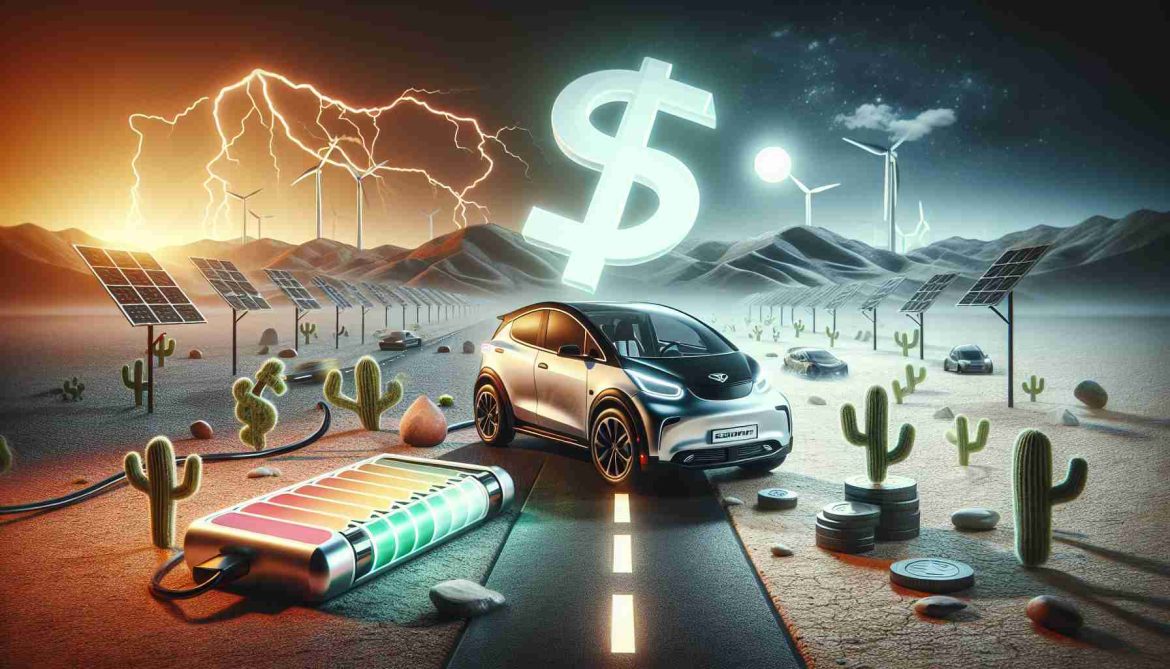Contrary to Expectations, Many Drivers Resist Transition to Electric Cars
A significant shift towards electric vehicles was predicted by 2035, with the possibility of traditional combustion engine cars being phased out in Europe. However, a surprising number of drivers who initially embraced electric cars are now expressing a desire to revert to internal combustion engines.
The Struggle with Current Electric Vehicle Technology
According to a report by McKinsey, a third of electric vehicle buyers are contemplating switching back to combustion engine vehicles. Long-distance travel remains a major concern, as electric cars are perceived as inconvenient for covering extensive distances without frequent stops, despite the cost savings they offer. Issues such as limited availability of ultra-fast charging points contribute to this reluctance.
Technology vs. Subsidies
Efforts to make electric vehicles more affordable in Europe, through initiatives like Renault’s revamped Renault 5 and Citroën’s latest C3 electric model, seem promising. Yet, even with incentives like subsidies, including Spain’s €4500 grant for trading in old vehicles for certain electric or plug-in hybrid cars, the high costs associated with electric vehicle batteries continue to deter consumers.
Technological Advancements on the Horizon
The main drawbacks of electric cars do not stem from their pricing but rather from technological limitations. Consumers seek the convenience of quick energy refueling akin to their experience with traditional vehicles, rather than making multiple stops for charging.
Future solutions may lie in the development of solid-state batteries and battery swapping technologies, as hinted by manufacturers like NIO. Despite ongoing efforts to address these challenges, the ideal electric vehicle that resonates with consumers’ preferences for seamless travel experiences remains elusive, posing a conundrum for major players like Tesla and others investing heavily in electric mobility. The awaited breakthrough in electric vehicle technology may still be a few years away.
Addressing Key Challenges Faced by Electric Vehicles
As the automotive industry continues its transition towards electric vehicles, it faces a myriad of challenges that hinder widespread adoption despite emerging technologies. While the previous article touched on some critical issues, there are additional factors at play.
The Infrastructure Conundrum
One pressing concern for electric vehicle owners is the need for robust charging infrastructure. While significant progress has been made in expanding charging networks, range anxiety persists as drivers fear being stranded with no charging station in sight. The lack of standardized charging connectors and varying charging speeds across different stations further complicate the usability of electric cars.
Beyond Passenger Vehicles: Commercial Applications
While much of the focus has been on electric passenger cars, the challenges extend to commercial sectors like trucking and public transportation. Electric trucks face hurdles such as limited range, lengthy charging times, and the hefty upfront costs of electrification. Public transport agencies grapple with infrastructure upgrades required to support electric buses and trains.
The Regulatory Landscape
Regulatory frameworks play a pivotal role in shaping the adoption of electric vehicles. Questions around policies regarding emissions standards, tax incentives, and urban access restrictions remain central to the success of electric mobility. Striking a balance between encouraging electric vehicle uptake and ensuring a fair playing field for all automotive technologies poses a complex dilemma for policymakers.
Advantages and Disadvantages of Electric Vehicles
Electric vehicles offer numerous benefits, including lower operating costs, reduced greenhouse gas emissions, and a quieter driving experience. However, challenges such as limited driving range, long charging times, and high upfront costs hinder their widespread adoption. Balancing these advantages and disadvantages is crucial in shaping consumer perceptions and driving market demand.
In conclusion, the journey towards widespread electric vehicle adoption is riddled with challenges that require a multi-faceted approach from industry stakeholders, policymakers, and technology innovators. By addressing infrastructure gaps, expanding technological capabilities, and navigating regulatory landscapes, the automotive industry can overcome the hurdles and propel electric mobility into the mainstream.
For further insights on electric vehicle advancements and industry trends, check out the latest updates on EVgo, a leading provider of electric vehicle charging solutions. This domain offers valuable resources and information to stay informed about the evolving landscape of electric mobility.



